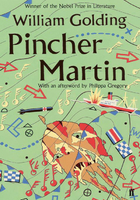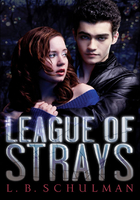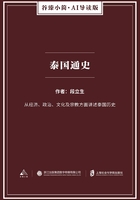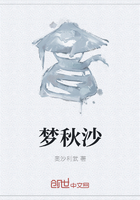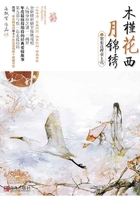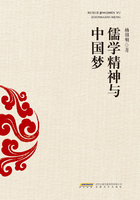Part 3
December 20th, 1826.
The fifth anniversary of my wedding-day, and, I trust, the last I shall spend under this roof. My resolution is formed, my plan concocted, and already partly put in execution. My conscience does not blame me, but while the purpose ripens let me beguile a few of these long winter evenings in stating the case for my own satisfaction: a dreary amusement enough, but having the air of a useful occupation, and being pursued as a task, it will suit me better than a lighter one.
In September, quiet Grassdale was again alive with a party of ladies and gentlemen (so called), consisting of the same individuals as those invited the year before last, with the addition of two or three others, among whom were Mrs. Hargrave and her younger daughter. The gentlemen and Lady Lowborough were invited for the pleasure and convenience of the host; the other ladies, I suppose, for the sake of appearances, and to keep me in check, and make me discreet and civil in my demeanour. But the ladies stayed only three weeks; the gentlemen, with two exceptions, above two months: for their hospitable entertainer was loth to part with them and be left alone with his bright intellect, his stainless conscience, and his loved and loving wife.
On the day of Lady Lowborough's arrival, I followed her into her chamber, and plainly told her that, if I found reason to believe that she still continued her criminal connection with Mr. Huntingdon, I should think it my absolute duty to inform her husband of the circumstance-or awaken his suspicions at least-however painful it might be, or however dreadful the consequences. She was startled at first by the declaration, so unexpected, and so determinately yet calmly delivered; but rallying in a moment, she coolly replied that, if I saw anything at all reprehensible or suspicious in her conduct, she would freely give me leave to tell his lordship all about it. Willing to be satisfied with this, I left her; and certainly I saw nothing thenceforth particularly reprehensible or suspicious in her demeanour towards her host; but then I had the other guests to attend to, and I did not watch them narrowly-for, to confess the truth, I feared to see anything between them. I no longer regarded it as any concern of mine, and if it was my duty to enlighten Lord Lowborough, it was a painful duty, and I dreaded to be called to perform it.
But my fears were brought to an end in a manner I had not anticipated. One evening, about a fortnight after the visitors' arrival, I had retired into the library to snatch a few minutes' respite from forced cheerfulness and wearisome discourse, for after so long a period of seclusion, dreary indeed as I had often found it, I could not always bear to be doing violence to my feelings, and goading my powers to talk, and smile and listen, and play the attentive hostess, or even the cheerful friend: I had just ensconced myself within the bow of the window, and was looking out upon the west, where the darkening hills rose sharply defined against the clear amber light of evening, that gradually blended and faded away into the pure, pale blue of the upper sky, where one bright star was shining through, as if to promise-'When that dying light is gone, the world will not be left in darkness, and they who trust in God, whose minds are unbeclouded by the mists of unbelief and sin, are never wholly comfortless,'-when I heard a hurried step approaching, and Lord Lowborough entered. This room was still his favourite resort. He flung the door to with unusual violence, and cast his hat aside regardless where it fell. What could be the matter with him? His face was ghastly pale; his eyes were fixed upon the ground; his teeth clenched: his forehead glistened with the dews of agony. It was plain he knew his wrongs at last!
Unconscious of my presence, he began to pace the room in a state of fearful agitation, violently wringing his hands and uttering low groans or incoherent ejaculations. I made a movement to let him know that he was not alone; but he was too preoccupied to notice it. Perhaps, while his back was towards me, I might cross the room and slip away unobserved. I rose to make the attempt, but then he perceived me. He started and stood still a moment; then wiped his streaming forehead, and, advancing towards me, with a kind of unnatural composure, said in a deep, almost sepulchral tone,-'Mrs. Huntingdon, I must leave you to-morrow.'
'To-morrow!' I repeated. 'I do not ask the cause.'
'You know it then, and you can be so calm!' said he, surveying me with profound astonishment, not unmingled with a kind of resentful bitterness, as it appeared to me.
'I have so long been aware of-' I paused in time, and added, 'of my husband's character, that nothing shocks me.'
'But this-how long have you been aware of this?' demanded he, laying his clenched hand on the table beside him, and looking me keenly and fixedly in the face.
I felt like a criminal.
'Not long,' I answered.
'You knew it!' cried he, with bitter vehemence-'and you did not tell me! You helped to deceive me!'
'My lord, I did not help to deceive you.'
'Then why did you not tell me?'
'Because I knew it would be painful to you. I hoped she would return to her duty, and then there would be no need to harrow your feelings with such-'
'O God! how long has this been going on? How long has it been, Mrs. Huntingdon?-Tell me-I must know!' exclaimed, with intense and fearful eagerness.
'Two years, I believe.'
'Great heaven! and she has duped me all this time!' He turned away with a suppressed groan of agony, and paced the room again in a paroxysm of renewed agitation. My heart smote me; but I would try to console him, though I knew not how to attempt it.
'She is a wicked woman,' I said. 'She has basely deceived and betrayed you. She is as little worthy of your regret as she was of your affection. Let her injure you no further; abstract yourself from her, and stand alone.'
'And you, Madam,' said he sternly, arresting himself, and turning round upon me, 'you have injured me too by this ungenerous concealment!'
There was a sudden revulsion in my feelings. Something rose within me, and urged me to resent this harsh return for my heartfelt sympathy, and defend myself with answering severity. Happily, I did not yield to the impulse. I saw his anguish as, suddenly smiting his forehead, he turned abruptly to the window, and, looking upward at the placid sky, murmured passionately, 'O God, that I might die!'-and felt that to add one drop of bitterness to that already overflowing cup would be ungenerous indeed. And yet I fear there was more coldness than gentleness in the quiet tone of my reply:-'I might offer many excuses that some would admit to be valid, but I will not attempt to enumerate them-'
'I know them,' said he hastily: 'you would say that it was no business of yours: that I ought to have taken care of myself; that if my own blindness has led me into this pit of hell, I have no right to blame another for giving me credit for a larger amount of sagacity than I possessed-'
'I confess I was wrong,' continued I, without regarding this bitter interruption; 'but whether want of courage or mistaken kindness was the cause of my error, I think you blame me too severely. I told Lady Lowborough two weeks ago, the very hour she came, that I should certainly think it my duty to inform you if she continued to deceive you: she gave me full liberty to do so if I should see anything reprehensible or suspicious in her conduct; I have seen nothing; and I trusted she had altered her course.'
He continued gazing from the window while I spoke, and did not answer, but, stung by the recollections my words awakened, stamped his foot upon the floor, ground his teeth, and corrugated his brow, like one under the influence of acute physical pain.
'It was wrong, it was wrong!' he muttered at length. 'Nothing can excuse it; nothing can atone for it,-for nothing can recall those years of cursed credulity; nothing obliterate them!-nothing, nothing!' he repeated in a whisper, whose despairing bitterness precluded all resentment.
'When I put the case to myself, I own it was wrong,' I answered; 'but I can only now regret that I did not see it in this light before, and that, as you say, nothing can recall the past.'
Something in my voice or in the spirit of this answer seemed to alter his mood. Turning towards me, and attentively surveying my face by the dim light, he said, in a milder tone than he had yet employed,-'You, too, have suffered, I suppose.'
'I suffered much, at first.'
'When was that?'
'Two years ago; and two years hence you will be as calm as I am now, and far, far happier, I trust, for you are a man, and free to act as you please.'
Something like a smile, but a very bitter one, crossed his face for a moment.
'You have not been happy, lately?' he said, with a kind of effort to regain composure, and a determination to waive the further discussion of his own calamity.
'Happy?' I repeated, almost provoked at such a question. 'Could I be so, with such a husband?'
'I have noticed a change in your appearance since the first years of your marriage,' pursued he: 'I observed it to-to that infernal demon,' he muttered between his teeth; 'and he said it was your own sour temper that was eating away your bloom: it was making you old and ugly before your time, and had already made his fireside as comfortless as a convent cell. You smile, Mrs. Huntingdon; nothing moves you. I wish my nature were as calm as yours.'
'My nature was not originally calm,' said I. 'I have learned to appear so by dint of hard lessons and many repeated efforts.'
At this juncture Mr. Hattersley burst into the room.
'Hallo, Lowborough!' he began-'Oh! I beg your pardon,' he exclaimed on seeing me. 'I didn't know it was a tete-e-tete. Cheer up, man,' he continued, giving Lord Lowborough a thump on the back, which caused the latter to recoil from him with looks of ineffable disgust and irritation. 'Come, I want to speak with you a bit.'
'Speak, then.'
'But I'm not sure it would be quite agreeable to the lady what I have to say.'
'Then it would not be agreeable to me,' said his lordship, turning to leave the room.
'Yes, it would,' cried the other, following him into the hall. 'If you've the heart of a man, it would be the very ticket for you. It's just this, my lad,' he continued, rather lowering his voice, but not enough to prevent me from hearing every word he said, though the half-closed door stood between us. 'I think you're an ill-used man-nay, now, don't flare up; I don't want to offend you: it's only my rough way of talking. I must speak right out, you know, or else not at all; and I'm come-stop now! let me explain-I'm come to offer you my services, for though Huntingdon is my friend, he's a devilish scamp, as we all know, and I'll be your friend for the nonce. I know what it is you want, to make matters straight: it's just to exchange a shot with him, and then you'll feel yourself all right again; and if an accident happens-why, that'll be all right too, I daresay, to a desperate fellow like you. Come now, give me your hand, and don't look so black upon it. Name time and place, and I'll manage the rest.'
'That,' answered the more low, deliberate voice of Lord Lowborough, 'is just the remedy my own heart, or the devil within it, suggested-to meet him, and not to part without blood. Whether I or he should fall, or both, it would be an inexpressible relief to me, if-'
'Just so! Well then,-'
'No!' exclaimed his lordship, with deep, determined emphasis. 'Though I hate him from my heart, and should rejoice at any calamity that could befall him, I'll leave him to God; and though I abhor my own life, I'll leave that, too, to Him that gave it.'
'But you see, in this case,' pleaded Hattersley-
'I'll not hear you!' exclaimed his companion, hastily turning away. 'Not another word! I've enough to do against the fiend within me.'
'Then you're a white-livered fool, and I wash my hands of you,' grumbled the tempter, as he swung himself round and departed.
'Right, right, Lord Lowborough,' cried I, darting out and clasping his burning hand, as he was moving away to the stairs. 'I begin to think the world is not worthy of you!' Not understanding this sudden ebullition, he turned upon me with a stare of gloomy, bewildered amazement, that made me ashamed of the impulse to which I had yielded; but soon a more humanised expression dawned upon his countenance, and before I could withdraw my hand, he pressed it kindly, while a gleam of genuine feeling flashed from his eyes as he murmured, 'God help us both!'
'Amen!' responded I; and we parted.
I returned to the drawing-room, where, doubtless, my presence would be expected by most, desired by one or two. In the ante-room was Mr. Hattersley, railing against Lord Lowborough's poltroonery before a select audience, viz. Mr. Huntingdon, who was lounging against the table, exulting in his own treacherous villainy, and laughing his victim to scorn, and Mr. Grimsby, standing by, quietly rubbing his hands and chuckling with fiendish satisfaction.
In the drawing-room I found Lady Lowborough, evidently in no very enviable state of mind, and struggling hard to conceal her discomposure by an overstrained affectation of unusual cheerfulness and vivacity, very uncalled-for under the circumstances, for she had herself given the company to understand that her husband had received unpleasant intelligence from home, which necessitated his immediate departure, and that he had suffered it so to bother his mind that it had brought on a bilious headache, owing to which, and the preparations he judged necessary to hasten his departure, she believed they would not have the pleasure of seeing him to-night. However, she asserted, it was only a business concern, and so she did not intend it should trouble her. She was just saying this as I entered, and she darted upon me such a glance of hardihood and defiance as at once astonished and revolted me.
'But I am troubled,' continued she, 'and vexed too, for I think it my duty to accompany his lordship, and of course I am very sorry to part with all my kind friends so unexpectedly and so soon.'
'And yet, Annabella,' said Esther, who was sitting beside her, 'I never saw you in better spirits in my life.'
'Precisely so, my love: because I wish to make the best of your society, since it appears this is to be the last night I am to enjoy it till heaven knows when; and I wish to leave a good impression on you all,'-she glanced round, and seeing her aunt's eye fixed upon her, rather too scrutinizingly, as she probably thought, she started up and continued: 'To which end I'll give you a song-shall I, aunt? shall I, Mrs. Huntingdon? shall I ladies and gentlemen all? Very well. I'll do my best to amuse you.'
She and Lord Lowborough occupied the apartments next to mine. I know not how she passed the night, but I lay awake the greater part of it listening to his heavy step pacing monotonously up and down his dressing-room, which was nearest my chamber. Once I heard him pause and throw something out of the window with a passionate ejaculation; and in the morning, after they were gone, a keen-bladed clasp-knife was found on the grass-plot below; a razor, likewise, was snapped in two and thrust deep into the cinders of the grate, but partially corroded by the decaying embers. So strong had been the temptation to end his miserable life, so determined his resolution to resist it.
My heart bled for him as I lay listening to that ceaseless tread. Hitherto I had thought too much of myself, too little of him: now I forgot my own afflictions, and thought only of his; of the ardent affection so miserably wasted, the fond faith so cruelly betrayed, the-no, I will not attempt to enumerate his wrongs-but I hated his wife and my husband more intensely than ever, and not for my sake, but for his.
They departed early in the morning, before any one else was down, except myself, and just as I was leaving my room Lord Lowborough was descending to take his place in the carriage, where his lady was already ensconced; and Arthur (or Mr. Huntingdon, as I prefer calling him, for the other is my child's name) had the gratuitous insolence to come out in his dressing-gown to bid his 'friend' good-by.
'What, going already, Lowborough!' said he. 'Well, good-morning.' He smilingly offered his hand.
I think the other would have knocked him down, had he not instinctively started back before that bony fist quivering with rage and clenched till the knuckles gleamed white and glistening through the skin. Looking upon him with a countenance livid with furious hate, Lord Lowborough muttered between his closed teeth a deadly execration he would not have uttered had he been calm enough to choose his words, and departed.
'I call that an unchristian spirit now,' said the villain. 'But I'd never give up an old friend for the sake of a wife. You may have mine if you like, and I call that handsome; I can do no more than offer restitution, can I?'
But Lowborough had gained the bottom of the stairs, and was now crossing the hall; and Mr. Huntingdon, leaning over the banisters, called out, 'Give my love to Annabella! and I wish you both a happy journey,' and withdrew, laughing, to his chamber.
He subsequently expressed himself rather glad she was gone. 'She was so deuced imperious and exacting,' said he. 'Now I shall be my own man again, and feel rather more at my ease.'
I know nothing more of Lord Lowborough's subsequent proceedings but what I have heard from Milicent, who, though she is ignorant of the cause of his separation from her cousin, has informed me that such is the case; that they keep entirely separate establishments; that she leads a gay, dashing life in town and country, while he lives in strict seclusion at his old castle in the north. There are two children, both of whom he keeps under his own protection. The son and heir is a promising child nearly the age of my Arthur, and no doubt a source of some hope and comfort to his father; but the other, a little girl between one and two, with blue eyes and light auburn hair, he probably keeps from conscientious motives alone, thinking it wrong to abandon her to the teaching and example of such a woman as her mother. That mother never loved children, and has so little natural affection for her own that I question whether she will not regard it as a relief to be thus entirely separated from them, and delivered from the trouble and responsibility of their charge.
Not many days after the departure of Lord and Lady Lowborough, the rest of the ladies withdrew the light of their presence from Grassdale. Perhaps they might have stayed longer, but neither host nor hostess pressed them to prolong their visit-in fact, the former showed too plainly that he should be glad to get rid of them;-and Mrs. Hargrave retired with her daughters and her grand-children (there are three of them now) to the Grove. But the gentlemen remained: Mr. Huntingdon, as I intimated before, was determined to keep them as long as he could; and, being thus delivered from restraint, they gave a loose to all their innate madness, folly, and brutality, and made the house night after night one scene of riot, uproar, and confusion. Who among them behaved the worst, or who the best, I can not distinctly say; for, from the moment I discovered how things would be, I formed the resolution of retreating upstairs or locking myself into the library the instant I withdrew from the dining-room, and not coming near them again till breakfast;-but this I must say for Mr. Hargrave, that from all I could see of him, he was a model of decency, sobriety, and gentlemanly manners in comparison with the rest.
He did not join the party till a week or ten days after the arrival of the other guests; for he was still on the Continent when they came, and I cherished the hope that he would not accept the invitation. Accept it he did, however, but his conduct towards me, for the first few weeks, was exactly what I should have wished it to be-perfectly civil and respectful without any affectation of despondency or dejection, and sufficiently distant without haughtiness, or any of such remarkable stiffness or iciness or demeanour as might be calculated to disturb or puzzle his sister, or call forth the investigation of his mother.


